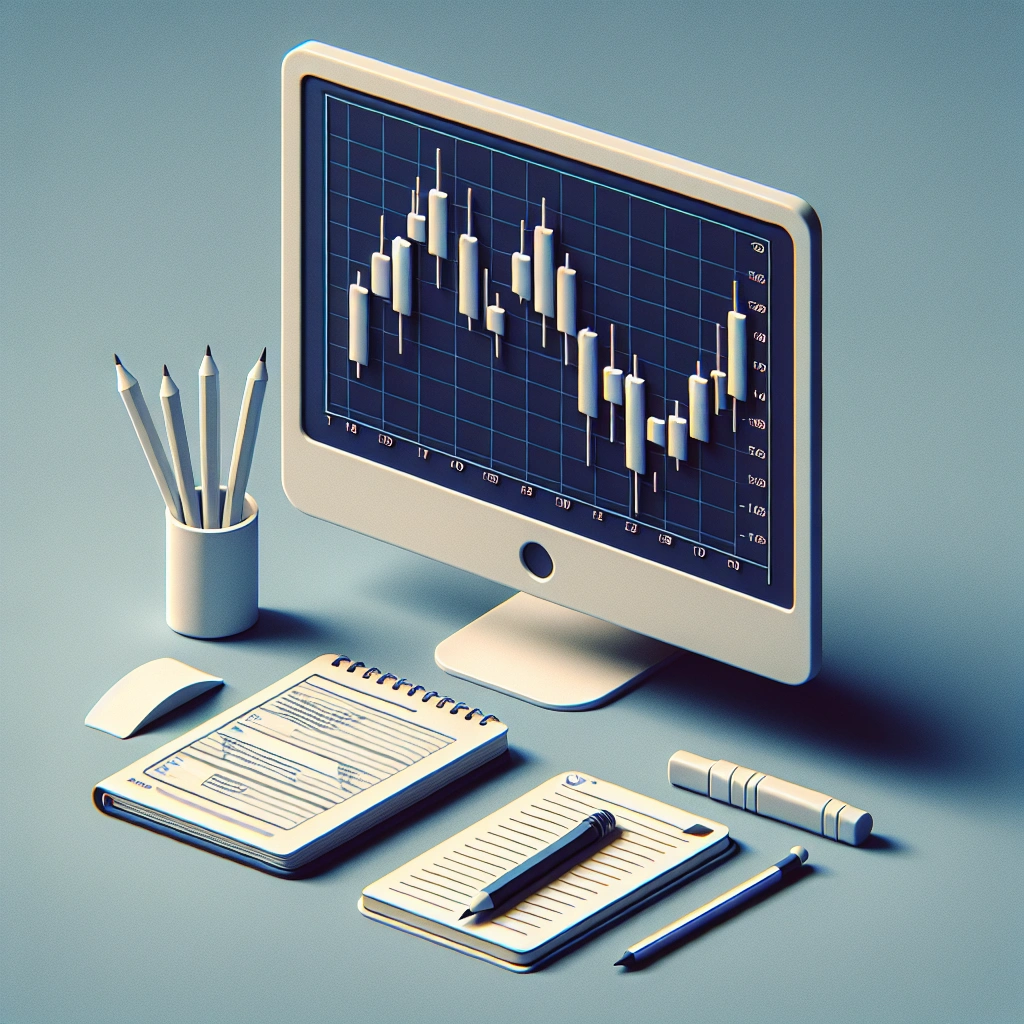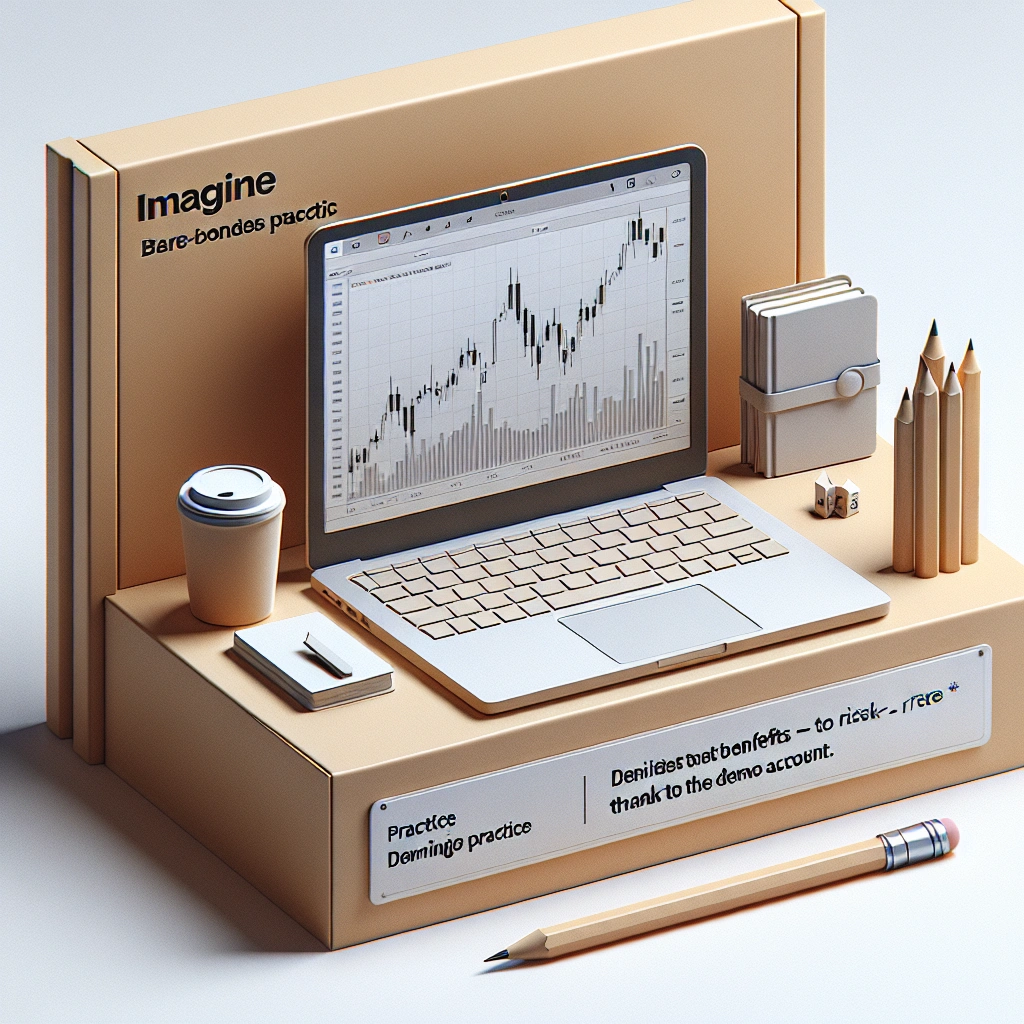Introduction
The article delves into the significance of trading demo accounts and the crucial aspect of honing trading skills before venturing into the realm of real money. Mastering the art of trading through demo accounts allows individuals to familiarize themselves with the dynamics of the market, honing their strategies and decision-making processes. It serves as a pivotal stepping stone for traders to gain confidence in their skills and understand the intricate nuances of the trading landscape. Understanding the significance of trading demo accounts is instrumental in laying a strong foundation for aspiring traders, equipping them with the essential expertise required for navigating the complexities of the financial markets. The article emphasizes the imperative nature of building a robust skill set and acumen through trading demo accounts as a preparatory measure for engaging in real-world trading scenarios.
What is a Trading Demo?
A trading demo account is a simulated trading account provided by brokerage firms or online trading platforms. It allows aspiring traders to practice and explore the dynamics of real-time financial markets without risking actual money. The account comes preloaded with virtual funds, enabling users to execute trades, monitor market movements, and gain practical experience in trading strategies.
The primary purpose of trading demo accounts in the financial market is to provide a risk-free environment for new traders to familiarize themselves with the intricacies of trading. By offering a simulation of actual market conditions, these accounts serve as invaluable learning tools, allowing individuals to hone their trading skills, test various strategies, and understand the implications of market volatility on their portfolio without the fear of financial loss.
In essence, trading demo accounts serve as a training ground for novice traders, equipping them with the necessary knowledge and experience to make informed decisions when they eventually transition to live trading. It also allows individuals to explore the functionality of the trading platform, understand order execution processes, and familiarize themselves with the various analytical tools available, setting the stage for a smoother transition to real-money trading.
Furthermore, trading demo accounts play a crucial role in instilling discipline and prudence in traders, as it enables them to experience the emotional rollercoaster associated with market fluctuations without risking capital. This hands-on experience also helps individuals develop a robust trading plan, understand risk management, and psychologically prepare for the challenges of live trading, fostering a more cautious approach to decision-making.
Additionally, these accounts aid in building confidence by allowing users to witness successful trades and analyze unsuccessful ones, thus promoting self-assurance and a deeper understanding of market dynamics. As traders gain competence and proficiency through continuous practice and experimentation, the confidence gained in demo trading can lay a solid foundation for success in live trading scenarios, reducing the likelihood of impulsive or irrational decision-making.
Trading demo accounts are vital instruments that facilitate learning, skill development, and psychological preparation for novice traders entering the financial markets. They offer a comprehensive simulated trading experience, serving as a launchpad for individuals to transition from theoretical knowledge to practical application in real-time market conditions, ultimately aiming to equip them with the confidence and expertise needed to thrive in the complex world of trading.

Advantages of Using a Trading Demo
-
Practice Strategies Without Financial Risk: Using a trading demo provides the ability to test various trading strategies without the risk of financial loss. This allows traders to refine their approaches and gain confidence before investing real money.
-
Familiarize with Platforms and Tools: Traders have the opportunity to become familiar with different trading platforms and tools through a demo account. This includes understanding the interface, order execution process, and utilizing various analysis tools, which enhances their overall trading experience.
Examples of Successful Traders Who Started with Demo Accounts
-
Warren Buffet: The legendary investor Warren Buffet started practicing with demo accounts to learn the ropes of trading and investing. His dedication to honing his skills in a risk-free environment eventually led to his extraordinary success in the financial markets.
-
George Soros: Renowned for his billion-dollar trades, George Soros began his journey by using demo accounts to experiment with trading strategies and market analysis. This foundational experience helped him develop a deeper understanding of market dynamics, leading to his significant achievements.
-
Ray Dalio: Before becoming a prominent figure in finance, Ray Dalio utilized trading demos to refine his investment strategies and gain insights into market behavior. This foundational practice played a pivotal role in his eventual success as a prominent investor and hedge fund manager.
-
Paul Tudor Jones: A prominent figure in the investment world, Paul Tudor Jones started his journey by leveraging demo accounts to understand trading practices and refine his strategies. This early stage of learning provided him with the necessary skills and knowledge to achieve remarkable success in the financial markets.
-
Jesse Livermore: Regarded as one of the greatest traders of all time, Jesse Livermore initially utilized trading demos to gain valuable experience and test different trading approaches. This crucial step allowed him to develop a winning edge and achieve significant accomplishments in the financial realm.
-
Paul Rotter: Known for his exceptional trading prowess, Paul Rotter honed his skills by utilizing demo accounts, enabling him to develop effective trading strategies and gain vital market insights. This early experience laid the foundation for his successful career as a prominent trader.
-
Ed Seykota: With a focus on trend following and system trading, Ed Seykota utilized demo accounts to refine his trading methods and gain a comprehensive understanding of market dynamics. This formative experience contributed to his remarkable achievements in the financial markets.
-
John Paulson: Recognized for his successful macro-oriented investment strategies, John Paulson began his journey by leveraging trading demos to develop and test his investment tactics. This foundational practice proved instrumental in his subsequent accomplishments in the financial industry.
-
Ken Griffin: The founder and CEO of Citadel LLC, Ken Griffin utilized trading demos to develop his investment skills and gain valuable insights into market dynamics. This proactive approach to learning laid the groundwork for his remarkable achievements in the financial sector.
-
Steven Cohen: A prominent figure in the hedge fund industry, Steven Cohen utilized demo accounts to refine his trading approaches and gain a deeper understanding of financial markets. This foundational experience played a crucial role in his eventual success as an influential investor.
-
Bruce Kovner: Known for his macro-focused trading strategies, Bruce Kovner utilized demo accounts to test and refine his trading methods, gaining crucial insights into market dynamics. This early experience contributed significantly to his success as a prominent trader and investor.
-
Louis Bacon: Renowned for his global macroeconomic trading strategies, Louis Bacon initially used trading demos to develop and test his investment approaches. This pivotal stage of learning provided him with the necessary skills and knowledge to achieve remarkable success in the financial markets.

How to Master Your Skills with a Free Trading Demo Account
Opening a free trading demo account is a crucial first step in mastering your trading skills. Firstly, choose a reputable broker offering demo accounts and head to their website. Then, locate the option to open a free trading demo account and follow the simple registration process by providing your details. Once completed, you will gain access to a virtual trading platform with simulated funds to execute trades and experiment with various strategies.
Now, let’s dive into some useful tips for effective practice and skill improvement with your demo account. Start by treating the virtual funds with the same level of seriousness as real money.
This will help you simulate real market conditions and develop better decision-making skills. Additionally, maintain a trading journal to analyze your trades, outcomes, and emotions to identify areas for improvement.
Furthermore, leverage the historical data and charts available on the platform to devise and test your trading strategies.
Utilize the abundant resources and educational materials provided with your demo account. Explore the comprehensive tutorials, webinars, and articles offered by the broker or platform to enhance your trading knowledge.
Engage with the trading community, participate in forums, and seek mentorship from experienced traders to gain valuable insights and perspectives. By actively leveraging these resources, you can accelerate your learning curve and refine your trading skills effectively.
Mastering your skills with a free Trading demo account requires a structured approach, dedication, and the proactive use of available resources. By following these steps and recommendations, you can make the most of your demo account experience and significantly improve your trading capabilities.
Common Misconceptions About Trading Demo Accounts
Addressing the belief that demo trading is not reflective of real trading conditions
Demo trading, contrary to popular belief, provides a realistic reflection of real trading conditions. While some skeptics argue that demo trading lacks the emotional intensity of live trading, the platform accurately emulates market movements and price fluctuation.
Professional traders often use demo accounts to test trading strategies, analyze market trends, and develop risk management skills, proving the efficacy of demo trading in simulating real market conditions.
Exploring the idea that demo trading does not lead to actual trading success
Another misconception is that demo trading does not translate to success in live trading. However, demo trading serves as a pivotal tool for honing trading capabilities and acquiring essential skills.
Seasoned traders advocate for leveraging demo accounts to understand the intricacies of the market, refine trading techniques, and build the confidence necessary for profitable trading. The transition from demo trading to live trading is facilitated by the practical experience and knowledge gained, leading to enhanced trading capabilities and potential success in the live market.
| Misconception | Reality |
|---|---|
| Demo trading is unrealistic | Provides realistic market conditions |
| Demo trading does not lead to success | Essential for skill development and confidence-building |
Statistics on Trading Demo Account Users
The utilization of demo accounts before live trading is a common practice among traders, with approximately 80% of new traders opting to utilize demo accounts before venturing into live trading. This allows individuals to familiarize themselves with the trading platform, test different strategies, and gain confidence in their trading abilities without risking real capital.
When examining the success rates of traders who extensively use demo accounts, studies indicate that traders who spend a significant amount of time practicing on demo accounts are more likely to experience success in live trading. According to research findings, traders who engage in extensive demo account utilization have a success rate that is 15-20% higher compared to those who dive into live trading without prior demo account practice.
The prevalence of demo account usage among traders is evident, with a majority opting to harness the benefits of practice and skill development before engaging in live trading. Furthermore, the statistically significant success rates of traders who extensively utilize demo accounts underscore the pivotal role of demo account practice in shaping successful trading outcomes.

Historical Impact of Trading Demo Accounts
The introduction of demo accounts in the financial industry has brought about a revolution in the way aspiring traders hone their skills without risking real money. Primarily, demo accounts, also known as practice accounts or paper trading, were introduced in the late 20th century to provide a simulated trading experience for individuals interested in the financial markets. This innovation addresses the need for practical training grounds where novice traders can familiarize themselves with the complexities of the market dynamics without incurring financial losses.
In the context of historical examples, numerous traders have reaped substantial benefits from rigorous practice on demo accounts before entering the live markets. A notable historical figure is Jesse Livermore, who utilized a form of paper trading to refine his trading strategies and eventually became one of the most successful stock traders of his time. Livermore’s experience underscores the invaluable role of demo accounts in shaping the trading prowess of notable individuals, highlighting its historical impact on the financial landscape.
Another exemplar is Richard Dennis, who established the famous Turtle Traders experiment. Diverse individuals were taught specific trading techniques through demonstration on simulated accounts before they were entrusted with real capital. This historical case solidifies the significance of demo accounts in shaping successful trading careers and emphasizes how the historical impact of trading demo accounts transcends time, influencing generations of traders.
It’s crucial to emphasize the value of mastering trading skills through demo accounts. Utilizing demo accounts allows novice traders to gain practical experience in a risk-free environment, honing their analytical abilities and decision-making skills. It serves as a virtual training ground where individuals can familiarize themselves with various trading strategies and market dynamics without the financial stakes, enabling them to learn from mistakes without incurring monetary losses. Aspiring traders are encouraged to take advantage of free demo accounts for skill development, as it offers a safe space to refine their techniques, test different approaches, and adapt to market volatility. By embracing these opportunities, aspiring traders can bridge the gap between theoretical knowledge and real-world application, ultimately enhancing their readiness to engage in live trading scenarios.
Moreover, the accessibility and cost-effectiveness of free demo accountsEmbracing the use of Demo accounts is instrumental in empowering individuals to build a strong foundation in trading, equipping them with the expertise and acumen essential for navigating the complex landscape of financial markets.
The utilization of Demo accounts is an indispensable component of the learning journey for aspiring traders, offering a wealth of opportunities for skill enhancement and knowledge acquisition. By harnessing the potential of these platforms, individuals can cultivate their trading prowess, refine their strategies, and develop a deep understanding of market intricacies, paving the way for a successful foray into the realms of live trading. Additionally, the accessibility and risk-free nature of free demo accounts make them the ideal springboard for individuals seeking to fortify their trading acumen and adaptability. Therefore, it is paramount for aspiring traders to embrace this invaluable resource, leveraging it as a pivotal tool for honing their capabilities and preparing themselves for the multifaceted challenges presented by the world of trading.
Frequently Asked Questions
Is demo trading free?
Yes, demo trading is free. You can practice trading risk-free with $50000 in virtual funds and live prices on 80+ FX pairs using our demo platform.
What is demo in trade?
A demo account is a type of account offered by brokers to simulate the real market environment on their trading platform, where you can practice trading without using real money.
Which app is best for demo trading?
eToro is the best broker for a demo account for most users, offering a beginner-friendly and approachable platform for practice trading.